Assessment of Problem Solving Using Simulations
Editat de Eva Baker, Jan Dickieson, Wallace Wulfeck, Harold F. O'Neilen Limba Engleză Hardback – 18 sep 2007
| Toate formatele și edițiile | Preț | Express |
|---|---|---|
| Paperback (1) | 422.59 lei 6-8 săpt. | |
| Taylor & Francis – 10 oct 2016 | 422.59 lei 6-8 săpt. | |
| Hardback (1) | 1013.04 lei 6-8 săpt. | |
| Taylor & Francis – 18 sep 2007 | 1013.04 lei 6-8 săpt. |
Preț: 1013.04 lei
Preț vechi: 1235.42 lei
-18% Nou
Puncte Express: 1520
Preț estimativ în valută:
193.87€ • 210.51$ • 162.85£
193.87€ • 210.51$ • 162.85£
Carte tipărită la comandă
Livrare economică 22 aprilie-06 mai
Preluare comenzi: 021 569.72.76
Specificații
ISBN-13: 9780805862935
ISBN-10: 0805862935
Pagini: 356
Ilustrații: illustrations
Dimensiuni: 152 x 229 x 24 mm
Greutate: 0.82 kg
Ediția:1
Editura: Taylor & Francis
Colecția Routledge
Locul publicării:Oxford, United Kingdom
ISBN-10: 0805862935
Pagini: 356
Ilustrații: illustrations
Dimensiuni: 152 x 229 x 24 mm
Greutate: 0.82 kg
Ediția:1
Editura: Taylor & Francis
Colecția Routledge
Locul publicării:Oxford, United Kingdom
Public țintă
ProfessionalCuprins
Contents: E.L. Baker, J. Dickieson, W.H. Wulfeck, H.F. O’Neil, Preface. Part I: The Context. E.L. Baker, D. Niemi, G.K.W.K. Chung, Simulations and the Transfer of Problem Solving Knowledge and Skills. A. Lesgold, Assessment to Steer the Course of Learning: Dither in Testing. D. Ketelhut, C. Dede, J. Clarke, B. Nelson, C. Bowman, Studying Situated Learning in a Multi-User Virtual Environment. J.T. Behrens, D. Frezzo, R. Mislevy, M. Kroopnick, D. Wise, Structural, Functional, and Semiotic Symmetries in Simulation-Based Games and Assessments. J.V. Cohn, K.M. Stanney, R.P. Darken, J.A. Sullivan, L.M. Milham, D.L. Jones, K.S. Hale, Training Evaluation of Virtual Environments. J.D. Fletcher, J.E. Morrison, Representing Cognition in Games and Simulations. Part II: Low-Stakes Assessment of Problem Solving. R. Mayer, Problem Solving Assessment in Games and Simulation Environments. H.F. O’Neil, H-H. Chen, R. Wainess, C-Y. Shen, Assessing Problem Solving in Simulation Games. H.F. O’Neil, S-h. Chuang, Measuring Collaborative Problem Solving in Low-Stakes Tasks. R. Molkenthin, K. Breuer, R.D. Tennyson, Real-Time Diagnostics of Problem-Solving Behavior for Business Simulations. Part III: High-Stakes Assessment of Problem Solving. W.H. Wulfeck, S.K. Wetzel-Smith, Use of Visualization Techniques to Improve High-Stakes Problem Solving. R.A. Wisher, Assessing Problem-Solving Performance in High-Stakes Tasks. L.L. Meliza, S.L. Goldberg, Impact of After-Action Review on Learning in Simulation-Based U.S. Army Training. D.H. Andrews, R.T. Nullmeyer, J. Good, P. Fitzgerald, Measurement of Learning Processes in Pilot Simulation. Part IV: Authoring Options. G.K.W.K. Chung, G.C. Delacruz, W.L. Bewley, E.L. Baker, J. Elmore, B. Seely, A Computational Approach to Authoring of Problem-Solving Assessments. T.P. Vendlinski, E.L. Baker, Templates and Objects in Authoring Problem-Solving Assessments.
Notă biografică
Jan Dickieson, Eva Baker, Wallace Wulfeck, Harold F. O'Neil
Descriere
This volume explores the application of computer simulation technology to measurement issues in education, especially as it pertains to problem based learning. Whereas most assessments related to problem solving are based on expensive and time consuming measures (i.e., think-aloud protocols or performance assessments that require extensive human rater scoring), this book relies on computerization of the major portion of the administration, scoring, and reporting of problem-solving assessments. It is appropriate for researchers, instructors and graduate students in educational assessment, educational technology, and educational psychology.
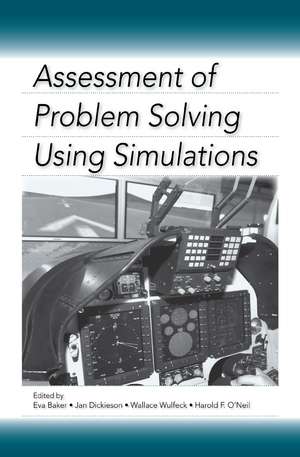
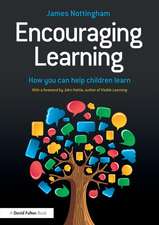

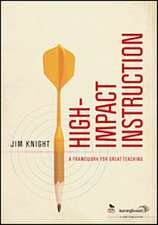
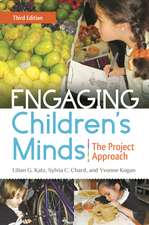


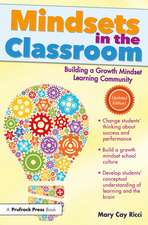


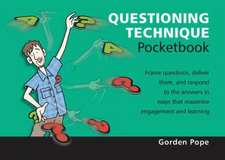
![I Just Want to Do It My Way! Activity Guide for Teachers [With CDROM]: My Story about Staying on Task and Asking for Help](https://i0.books-express.ro/bt/9781934490457/i-just-want-to-do-it-my-way-activity-guide-for-teachers-with-cdrom.jpg)